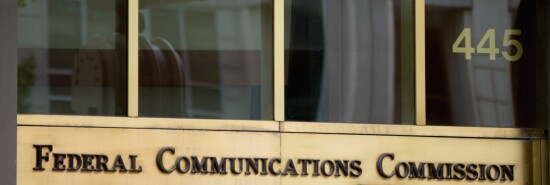
Don’t let special interests tie the FCC’s Hands
Harold Feld
Video Embed
Funding for the federal government runs out on Dec. 16. The Federal Communications Commission (FCC) spectrum auction authority expires the same day. Spectrum, the invisible airwaves that enable technology like cellular service and Wi-Fi, powers the technologies you and I use every day — and FCC auctions are critical to distributing it.
There is bipartisan support for reauthorizing FCC spectrum authority as part of the federal funding package, but special interests are pushing to add provisions to favor themselves. The wireless industry wants the federal government to clear the most valuable spectrum bands for themselves and prohibit the FCC from allocating valuable spectrum for innovative private networks or gigabit Wi-Fi. This would be a major mistake.
FCC BANS AUTHORIZATIONS FOR HUAWEI AND ZTE PHONES DUE TO SECURITY RISKS
Exclusively licensed spectrum, unlicensed spectrum, and shared licensed spectrum all play an important role in our economy and our daily lives. This is why 25 public interest groups, community organizations, schools, and libraries penned a letter to Senate Commerce Committee leadership urging them to reauthorize FCC auction authority while rejecting wireless industry demands to require the FCC to auction specific bands. At the same time, 26 companies, industry associations, and spectrum access stakeholders sent a letter to FCC leadership to build on the demonstrated success of the Citizens Broadband Radio Service (CBRS), a “licensed-by-rule” regime that allows broadband providers and operators of private networks to share spectrum with federal users and licensees as long as they follow the rules of the road. My organization, Public Knowledge, signed both letters.
The scope of this support illustrates the importance of allowing the FCC the freedom to provide adequate spectrum for all uses rather than letting a single industry sector dominate. Signatories to both letters include anchor institutions using CBRS to extend affordable access into their communities, wireless internet service providers, and Native American tribes in rural areas neglected by traditional mobile carriers and cable operators and using CBRS to augment their mobile service — competing with the concentrated wireless industry and bringing prices down for consumers.
CBRS and unlicensed spectrum have also emerged as the home of innovation for radical new services and wireless business models. In particular, private 5G networks have flourished using CBRS, and the future of open radio access networks (O-RAN) may well run through these private networks. CBRS is the most innovative spectrum access regime designed by the FCC in years. CBRS was explicitly designed by the FCC to sit halfway between traditional licensing and traditional unlicensed and meet needs that neither the wireless industry nor Wi-Fi could meet. The wireless industry hated this from the get-go and opposed it every step of the way.
In the approximately three years since rules went into effect — and despite uncertainty caused by wireless carrier efforts to remake spectrum in its own image and pester the FCC to change the settled rules — the FCC has authorized several hundred types of CBRS devices. Warehouse managers, including the U.S. Marine Corps, use CBRS to track inventory. Manufacturers use it to increase efficiency and reduce risk to workers. The City of Las Vegas built a massive CBRS network to bring broadband access to students during the height of the pandemic and has now committed to using CBRS to build the largest open private network in the U.S. for its small businesses and schools.
CLICK HERE TO READ MORE FROM THE WASHINGTON EXAMINER
CBRS competes for the same spectrum the wireless industry wants for exclusive licensing — hence the sudden slew of reports and editorials denouncing CBRS as a “failure.” And the proof that CBRS “fails?” It doesn’t work for the wireless carriers, so it’s a failure no matter who else uses it.
The U.S. leads the world in wireless innovation because the FCC successfully balances the interests of all wireless stakeholders and finds innovative ways to provide spectrum access for new uses. Congress should reauthorize the FCC’s auction authority while preserving the flexibility the FCC has used to keep the wireless economy and wireless innovation flourishing. Congress needs to listen to the nearly 50 different businesses, trade associations, and companies that rely on CBRS and other shared spectrum models rather than the smear campaign from one industry segment bent on keeping out rivals and stifling innovations that challenge their business model.
Harold Feld is Senior Vice President at Public Knowledge.
